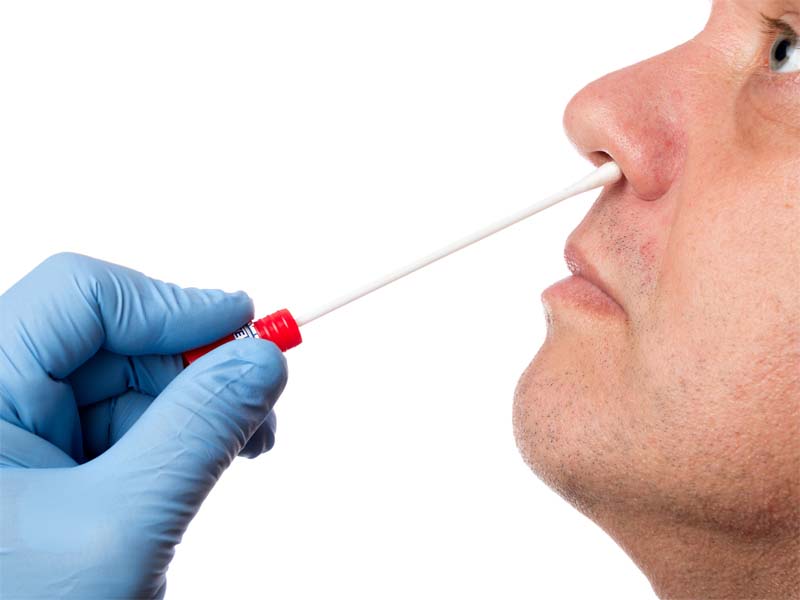Expand, Don’t Reduce, COVID-19 Testing, AAFP and Others Tell HHS
Guidance Downplaying Testing for Asymptomatic, Exposed People Causing ‘Confusion’
September 10, 2020, 3:20 pm News Staff -- As U.S. COVID-19 cases surge, more testing -- not less, as the administration recently suggested -- is needed to fight the pandemic, the Academy and 234 other national, state and local medical and health groups said in a recent letter.

August CDC guidance diminishing the importance of testing asymptomatic individuals exposed to COVID-19 "does not reflect the best available science and the best interest of the public's health and has resulted in confusion among public health and medical professionals and the public," said the Sept. 3 letter to Vice President Mike Pence, chair of the White House Coronavirus Task Force.
The letter, which called for the new guidance to be reconsidered, also was sent to HHS Secretary Alex Azar, CDC Director Robert Redfield, M.D., and Assistant HHS Secretary Adm. Brett Giroir, M.D. Among its co-signatories were Trust for America's Health, the Infectious Diseases Society of America and the Public Health Institute.
"As recently as July 22, CDC guidance clearly recommended testing for close contacts of individuals with COVID-19 and stressed the importance of identifying and quarantining contacts," the letter said. "The scientific basis for changes in recommendations must be clearly and transparently documented."
The letter emphasized the importance of ensuring that the agency is seen to root its decisions firmly in science.
"The foundation of public confidence in the national response to COVID-19 must include the protection of the CDC's widely recognized and respected independence and scientific integrity," the groups wrote.
The CDC's own estimates suggest that some 40% of people infected with COVID-19 are asymptomatic, making them a significant source of transmission.
"Identifying individuals infected with COVID-19 -- even if they are asymptomatic -- is critical to support appropriate isolation and quarantine measures (and) identification of contacts, to limit spread, and to provide the comprehensive view of community spread needed to inform effective public health responses," the groups wrote. "Testing of asymptomatic individuals may also be critical for certain high-risk workplaces, such as in nursing homes, and to support safe reopening of schools.
"By downplaying the importance of testing for asymptomatic individuals, especially those who have been exposed to the virus, these guidelines could precipitate further community spread."
The letter added that the CDC's guidance changes could limit insurance coverage for testing "by incorrectly calling into question the medical appropriateness of testing on asymptomatic individuals."
"Given the shortages in testing supplies and personnel, we support prioritizing testing for symptomatic individuals. However, our goal as a nation should be to expand testing capacity to allow for testing of all recommended individuals, including asymptomatic people who have been in close contact with an infected individual," the groups advised. "The solution to testing shortages is not to limit the number of people who are tested, but to expand the availability of tests."